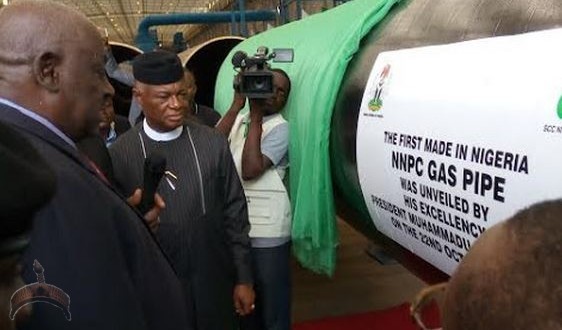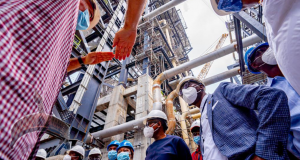Nigeria, Algeria, Angola, Cameroon, Egypt, and Equatorial Guinea account for the 71.1 million tons per annum (mtpa) liquefied natural gas (LNG) liquefaction capacity on the continent.
This is according to the World Oil Outlook (WOO), released by the Organization of Petroleum Exporting Countries (OPEC) in November 2022.
The liquefaction capacity of the six trains under Nigeria Liquefied Natural Gas (NLNG) Limited was placed at 22 mtpa as of Q3/2022.
The WOO went further to state that Africa’s total onstream liquefaction capacity in 2050 will reach around 144.8 mtpa which is more than double the continent’s existing export capacity. Also, LNG exports are forecast to increase to about 117 billion cubic meters (bcm) by 2050, positioning Africa as a major LNG hub over the long term.
During the just concluded COP 27 event in Egypt, the African Development Bank (AfDB) Group advocated for Africa to make use of natural gas as its transition fuel, to leapfrog African economies into an industrialization age in order to close gaps around energy access, employment and revenue generation.
Value of natural gas for Africa: The WOO highlights natural gas as Africa’s greatest opportunity as a long-term energy supply solution to help alleviate energy poverty and enhance the quality of life, specifically in sub-Saharan Africa. The Outlook also points out the fact that natural gas can meet the continent’s substantial power deficit, especially in sub-Saharan Africa. Increased gas availability will also encourage consumption by gas-based industries, such as petrochemicals, methanol and fertilizers, which will contribute to the productivity of the agricultural sector and food security.
Demand growth on the continent: The Gas Exporting Countries Forum (GECF) estimates that natural gas demand in Africa is expected to rise significantly from about 155 bcm in 2020 to almost 400 bcm by 2050, with the majority of this growth coming from sub-Saharan Africa. Meanwhile, electricity generation on the continent, is expected to rise from 850 terawatts per hour ((TWh) in 2020 to 3,130 TWh in 2050. Natural gas is expected to cover 38% of the total rise in electricity supply and provide a stable 38-39% share of the power generation mix in 2050.
Recent past capacity: As of 2020, Africa exported around 82 bcm of natural gas to other regions. Almost 70% of this volume, about 41 million tons (57 bcm), was exported in the form of LNG, mostly from GECF countries, including Nigeria, Algeria, Angola and Egypt, with Nigeria, leading the pack.
Needed investment: According to estimates from the GECF, transforming natural gas reserves into supply in Africa will require more than $1.6 trillion investment in the upstream sector alone. The AfDB advocates new technologies, management systems, and finance for Africa to develop and integrate their energy resources, including natural gas, to drive an industrial transformation on the continent.
For the record: On a global level, natural gas demand is set to increase strongly by 19 million barrels of oil equivalent per day (mboe/d) between 2021 and 2045, with a tendency to reach 85 mboe/d by the end of 2050.
- The long-term potential for natural gas is based on sufficient gas resources and its relatively low CO2 emissions. This is why many countries intend to increase the share of natural gas in their energy mix.
- The share of natural gas in the energy mix increases from 23% in 2021 to almost 24.5% in 2045. As coal declines, natural gas becomes the second-largest fuel in the energy mix after 2030.
 Ọmọ Oòduà Naija Gist | News From Nigeria | Entertainment gist Nigeria|Networking|News.. Visit for Nigeria breaking news , Nigerian Movies , Naija music , Jobs In Nigeria , Naija News , Nollywood, Gist and more
Ọmọ Oòduà Naija Gist | News From Nigeria | Entertainment gist Nigeria|Networking|News.. Visit for Nigeria breaking news , Nigerian Movies , Naija music , Jobs In Nigeria , Naija News , Nollywood, Gist and more









